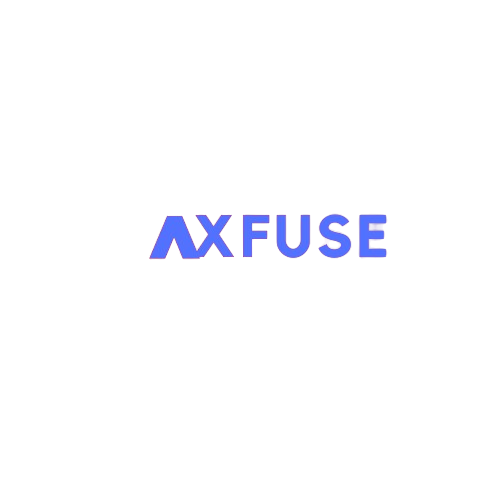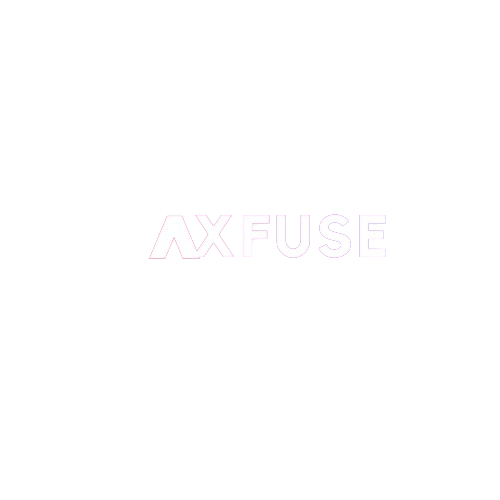South African citizens who wish to visit the United States for tourism, business, or other purposes must apply for a visa. The process of obtaining a U.S. visa can be complex and time-consuming, but with the right preparation and guidance, it can be a smooth and successful experience.
This article provides a comprehensive guide on how to apply for an American visa in South Africa.
The first step in the visa application process is to determine the type of visa you need.
The U.S. offers several types of visas, including tourist visas, business visas, student visas, and work visas.
Each type of visa has its own requirements and application process, so it is important to research and choose the appropriate visa category before starting the application.
Once you have determined the type of visa you need, you can begin the application process.
The application process includes filling out the online application form, scheduling an appointment for an interview at the U.S. embassy or consulate, paying the visa fee, and submitting the required documents.
The required documents may include a valid passport, proof of financial support, travel itinerary, and other supporting documents depending on the type of visa.
It is important to carefully review the application requirements and instructions to ensure that you submit a complete and accurate application.
Eligibility Criteria
To apply for an American visa in South Africa, applicants must meet certain eligibility criteria. These criteria vary depending on the type of visa being applied for.
Generally, applicants must have a valid reason for traveling to the United States and be able to demonstrate that they will return to South Africa after their visit.
Applicants must also have a valid passport that will remain valid for at least six months beyond their intended stay in the United States. In addition, they must complete the online application form and pay the appropriate fees.
For non-immigrant visas, such as tourist or business visas, applicants must demonstrate that they have strong ties to South Africa, such as a job, family, or property.
They must also provide evidence that they have the financial means to support themselves during their stay in the United States.
For immigrant visas, such as family or employment-based visas, applicants must have a sponsor in the United States who is willing to support them.
They must also meet certain qualifications, such as education or work experience, depending on the type of visa being applied for.
It is important to note that meeting the eligibility criteria does not guarantee that a visa will be granted.
Consular officers have the authority to deny a visa application if they believe the applicant does not meet the requirements or may pose a risk to the United States.
Applicants should carefully review the eligibility criteria for the type of visa they are applying for and ensure that they meet all requirements before submitting their application.
Types of American Visas
There are several types of American visas available for South African citizens. Each visa type has its own purpose and requirements. It is important to choose the right visa type based on the purpose of your visit to the United States.
B-1/B-2 Visa
The B-1/B-2 visa is a non-immigrant visa that allows South African citizens to travel to the United States for business or tourism purposes.
The B-1 visa is for business purposes, such as attending meetings or conferences, while the B-2 visa is for tourism and leisure activities, such as visiting friends or family, or going on vacation.
F-1 Visa
The F-1 visa is a non-immigrant visa that allows South African students to study in the United States.
This visa is for academic studies at an accredited college, university, seminary, conservatory, academic high school, elementary school, or other academic institution.
J-1 Visa
The J-1 visa is a non-immigrant visa that allows South Africans to participate in exchange programs in the United States.
This visa is for individuals who want to participate in work-and-study-based exchange programs, such as au pairs, research scholars, professors, and international students.
H-1B Visa
The H-1B visa is a non-immigrant visa that allows South Africans to work in the United States in specialty occupations.
This visa is for individuals who have a bachelor’s degree or higher and are employed in a specialty occupation that requires specialized knowledge and skills.
L-1 Visa
The L-1 visa is a non-immigrant visa that allows South Africans to work in the United States for a foreign employer that has a related business in the United States.
This visa is for individuals who have worked for the foreign employer for at least one year and are being transferred to the related business in the United States.
E-2 Visa
The E-2 visa is a non-immigrant visa that allows South Africans to invest in and manage a business in the United States.
This visa is for individuals who have invested a substantial amount of capital in a U.S. business and will be actively involved in the management of the business.
Each visa type has its own requirements and application process. South African citizens should carefully review the requirements for each visa type before applying.
Understanding the Visa Application Process
Determine the Type of Visa
The first step in applying for a US visa is to determine the type of visa that is required.
The US Department of State offers a variety of visa types, including tourist visas, student visas, and work visas.
It is important to determine the correct visa type before beginning the application process. More information about visa types can be found on the US Department of State Visa Information website.
Complete the Online Application (DS-160)
Once the correct visa type has been determined, the applicant must complete the online application form.
The DS-160 form is available on the US Department of State Consular Electronic Application Center website.
The form requires personal information, travel information, and other details about the applicant’s background and purpose for traveling to the US.
It is important to fill out the form completely and accurately to avoid delays or complications in the application process.
Pay the Visa Application Fee
After completing the DS-160 form, the applicant must pay the visa application fee.
The fee amount depends on the type of visa being applied for and can be found on the US Department of State Consular Electronic Application Center website.
Payment can be made online using a credit card or other accepted payment methods.
Schedule an Interview
The final step in the visa application process is to schedule an interview at the nearest US Embassy or Consulate.
The interview is an opportunity for the applicant to explain the purpose of their trip and provide any additional information that may be required.
The interview must be scheduled in advance and can be done online through the US Department of State Consular Electronic Application Center website.
Preparing for the Visa Interview
Before attending the visa interview, applicants must compile all necessary documentation and prepare for the interview questions. This section will describe the steps to take to ensure a successful visa interview.
Compile Necessary Documentation
To prepare for the visa interview, applicants must compile all necessary documentation related to the purpose of travel.
This includes a valid passport, the DS-160 confirmation page, a photograph that meets the requirements, and any additional documents required by the specific visa category.
The U.S. Department of State Visa Information website provides a suggested list of documents for all visa categories.
Applicants should review this list carefully and ensure that they have all the necessary documents before attending the interview.
Practice for the Interview Questions
During the visa interview, applicants will be asked questions about their purpose of travel, ties to their home country, and other relevant information.
To prepare for the interview questions, applicants should practice answering common interview questions and review their application.
Applicants should be honest and concise in their answers, and provide clear and detailed information.
It is important to remain calm and confident during the interview, and to dress appropriately.
Attending the Visa Interview
What to Bring
When attending a visa interview, it is important to bring all the required documents.
These documents may include a valid passport, a printed copy of the appointment confirmation letter, and any additional documents that were requested during the visa application process.
It is important to carefully review the instructions provided by the U.S. Embassy or Consulate and to bring all the required documents to the interview.
Interview Etiquette
During the visa interview, it is important to be polite and respectful to the consular officer.
The interview is an opportunity for the consular officer to determine whether the applicant qualifies for a U.S. visa.
Applicants should answer the questions truthfully and provide any additional information that may be requested by the consular officer.
It is also important to dress appropriately for the visa interview.
Applicants should dress in business attire and avoid wearing casual clothing such as shorts or flip-flops.
Additionally, applicants should arrive at the U.S. Embassy or Consulate at least 15 minutes before the scheduled interview time.
After the Interview
Visa Approval and Passport Collection
If the consular officer approves the visa application, the passport will be returned to the applicant with the visa affixed to it within 5-7 business days.
Applicants can track the status of their application on the Official U.S. Department of State Visa Appointment Service website.
It is important to note that the issuance of a visa does not guarantee entry into the United States. The visa holder will still be subject to inspection by a U.S. Customs and Border Protection officer upon arrival in the United States.
Visa Denial: Next Steps
If the consular officer denies the visa application, the applicant will be given a reason for the denial.
The most common reasons for visa denials include insufficient evidence of ties to South Africa, criminal history, and previous immigration violations.
If the applicant believes that the denial was made in error, they may request a review of the decision by the consular officer or apply for a waiver of the ineligibility.
If the applicant is denied a visa, they should not make any further travel arrangements until the visa is approved.
They may also want to consult with an immigration attorney to discuss their options for appealing the decision or applying for a waiver.
It is important to note that a visa denial can have long-term consequences for future visa applications, so it is important to take the necessary steps to address the issue.
Additional Resources and Assistance
Applying for a U.S. visa can be a daunting process, but there are resources available to help make it easier. The U.S. Embassy and Consulates in South Africa offer a variety of services and assistance to visa applicants.
Visa Information Service
The U.S. Department of State operates a Visa Information Service that provides information on how to apply for a U.S. visa, as well as how to pay visa fees, schedule appointments, and provide required documents.
This service can be accessed online at https://ais.usvisa-info.com/en-za/niv.
U.S. Embassy and Consulates in South Africa
The U.S. Embassy and Consulates in South Africa have resumed visa processing and offer a range of services to visa applicants.
Applicants can schedule an appointment or submit their visa application via courier.
More information can be found at https://za.usembassy.gov/visas/.
Additional Assistance
If you require additional assistance with your visa application, you can contact the U.S. Embassy or Consulate where you will apply. They can provide guidance and support throughout the application process.
It’s important to note that there are many visa scams and fraudulent services that claim to assist with the visa application process. Applicants should be cautious and only use official resources and services.

